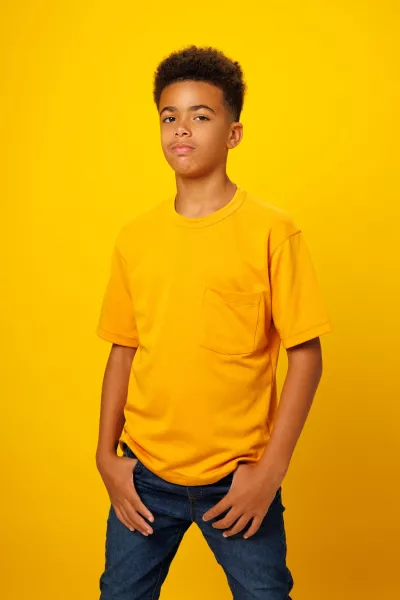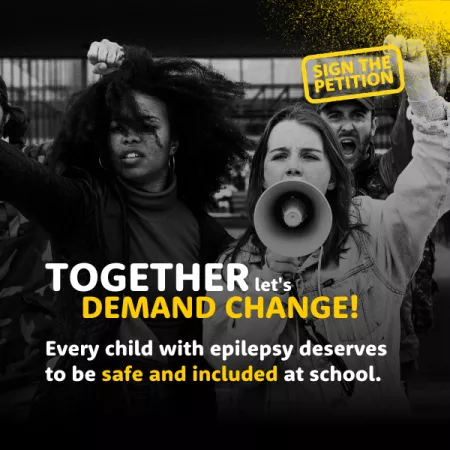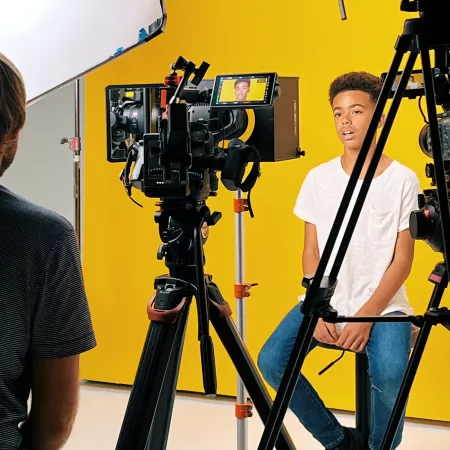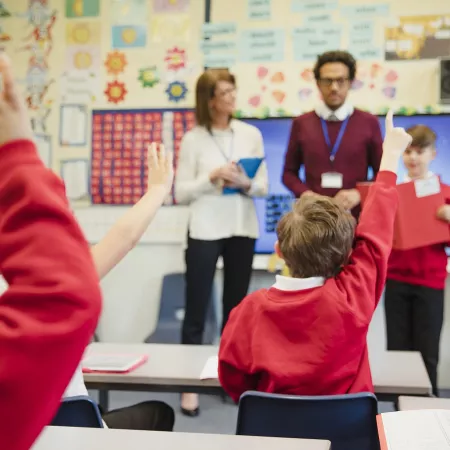Our campaign calls for UK governments to ensure schools have a current Individual Healthcare Plan (IHP) for every child with epilepsy. Too many children with epilepsy are left feeling isolated and excluded at school, due to a lack of understanding about their condition. We want to ensure every child has an equal opportunity to succeed, and having an IHP in place is the best way to ensure that can happen!
My teachers, they just didn't get it. And I got punished because they didn't understand, which was hurtful. And I felt singled out.Ruben

Read Ruben's full story
So, what is an Individual Healthcare Plan (IHP)?
An Individual Healthcare Plan (IHP) is a detailed document created for school-age students with medical conditions, such as epilepsy. It describes their seizures, how their condition is best managed, and the impact it has on their learning and behaviour, including any anti-seizure medication side effects. A clear emergency protocol must also be included, including when an ambulance should be called.
What should an IHP include?
As a minimum, an IHP should include:
- The young person’s epilepsy diagnosis
- A brief description of their seizure type(s) and any signs that a seizure might be about to occur
- Any known seizure triggers relevant to the young person
- Basic management of seizures/seizure first aid including any follow-up care needed
- Current medication, including dosage
- Emergency protocol
- Impact on learning and behaviour (utilising the ABLE Tool)
- Circumstances that call for additional consideration / risk assessment
- Reasonable adjustments required, including in the physical environment, curriculum, exams, etc.
- Additional training required, which may include administration of emergency medication
- Written permission from the parents and headteacher for any medication to be administered during the school day / school activities
- Communication protocol – who needs to know about the young person’s epilepsy and what they need to know
- Contact information
Why are IHPs essential and what are the benefits?
Clarity
A good seizure description can help everyone to recognise what happens to that young person and is much more useful than just the name of the seizure type(s). It can also help staff recognise when emergency procedures need to be followed.
If the young person has more than one type of seizure, different medical management may be needed for each seizure and this can be clearly shown on the IHP. An IHP can provide clear instructions on how parents should be informed about a seizure and when staff should follow emergency procedures.
Accurate Observation
Once a good seizure description has been incorporated in the IHP, school staff can be more aware of what to look out for and what needs to be recorded.
Accurate eye witness accounts can be given to the young person's medical team via the parents and this provides useful information that may influence treatments. Comparisons with previous seizures enable changes to be identified which may indicate the need for medication to be revised.
Reassurance
When school staff, the young person and their parents or carers have agreed what needs to be done, and this is set out clearly in the IHP, everyone can feel more confident about the young person's safety and inclusion in all school activities.
The increased confidence of the school staff will also extend to the class peers, encouraging them to include the young person with epilepsy in their social groups.
Consistency
All school staff will be aware of the young person’s condition and know what to do if they have a seizure. They’ll also understand the impact epilepsy has on the young person and the strategies in place to support them.
The school should record any changes in the young person’s learning, academic achievement, emotions and/or behaviour, and share this information with their parents or carers. Sometimes, it can be difficult to know whether such changes are due to seizures, anti-seizure medication or ongoing brain activity. They may indicate a change in the young person’s epilepsy that requires further investigation by their medical team and, possibly, changes in their treatment.
Download our Individual Healthcare Plan template here
Ideally, the IHP should be developed jointly between the school, the young person, their parents or carers, and healthcare professionals. If a healthcare professional cannot attend, find out what you need from your team to take to the meeting here.
As epilepsy can change over time, IHPs should be reviewed annually, or sooner if circumstances have changed. Parents should be reminded to keep the school informed of any changes in seizure activity, medication or behaviour.
An IHP is needed even if a young person’s seizures are currently controlled by treatment, because seizures may reoccur and epilepsy may still be having an impact on the young person’s learning and behaviour.
Our Call to Action
No child should feel isolated or excluded at school. Children with epilepsy face unique challenges, but with an IHP, these challenges can be managed effectively. We are calling on UK governments to ensure that every child with epilepsy in every school has an Individual Healthcare Plan. Sign our petition today and help us advocate for the necessary changes that will grant every child the equal opportunity to thrive.
Together, we create possible. It's time for action. Enough is enough!





